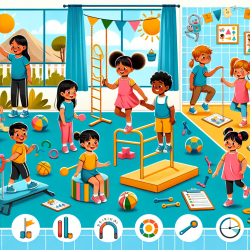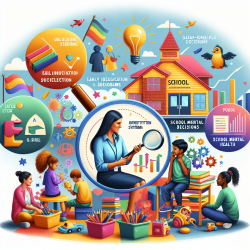As practitioners in the field of Speech-Language Pathology (SLP) and Audiology, our ultimate goal is to create the best outcomes for all children, including those from diverse cultural backgrounds. The research article "Course Development at The University of British Columbia Concerning Audiology and Speech-Language Pathology for People of First Nations, Métis and Inuit Heritage" provides valuable insights that can help us achieve this goal through culturally competent practice.The study, conducted by Bernhardt et al. (2011), emphasizes the importance of cultural competence and cultural safety when providing services to First Nations, Métis, and Inuit communities. Here are some key takeaways from the research and actionable steps you can implement in your practice:
Understanding Cultural Competence and Safety
The concepts of cultural competence and cultural safety are crucial for delivering effective and respectful services. According to the British Columbia Ministry of Health (2011), cultural competence involves adapting one's knowledge, attitudes, behaviors, and skills to work effectively with people from different cultural backgrounds. Cultural safety, on the other hand, goes beyond competence by addressing power imbalances and fostering trust.
Key Strategies for Enhancing Cultural Competence
The UBC course developed several strategies to enhance cultural competence among SLP and Audiology students. These strategies can be adapted and applied in professional practice:
- Community Engagement: Building relationships with First Nations, Métis, and Inuit communities is essential. Engage with community members to understand their unique needs and perspectives.
- Continuous Learning: Participate in cultural competency training programs and seek out resources that provide insights into the cultural practices and languages of First Nations, Métis, and Inuit peoples.
- Reflective Practice: Regularly reflect on your own cultural biases and how they may impact your interactions with clients. Use tools like reflection journals or arts projects to explore these issues.
- Incorporate Cultural Knowledge: Integrate culturally relevant materials and methods into your practice. For example, using culturally specific assessment tools and intervention strategies can improve the effectiveness of your services.
Implementing the UBC Course Outcomes in Your Practice
Here are some practical steps you can take to implement the outcomes of the UBC course in your professional practice:
- Develop Partnerships: Establish partnerships with local First Nations, Métis, and Inuit organizations to facilitate community visits and collaborative projects.
- Organize Cultural Experiences: Create opportunities for students and practitioners to participate in cultural experiences, such as community visits or cultural events.
- Use Culturally Relevant Resources: Utilize resources such as the Moe the Mouse program, which integrates cultural knowledge into speech-language development activities.
- Evaluate and Adapt: Continuously evaluate the effectiveness of your culturally competent practices and make necessary adjustments based on feedback from clients and community members.
Encouraging Further Research
While the UBC course provides a solid foundation, much remains to be learned about the speech, language, and hearing needs of First Nations, Métis, and Inuit communities. As practitioners, we should encourage and participate in further research to develop more effective and culturally relevant practices.To read the original research paper, please follow this link:
Course Development at The University of British Columbia Concerning Audiology and Speech-Language Pathology for People of First Nations, Métis and Inuit Heritage.By embracing the principles of cultural competence and safety, we can make a meaningful impact on the lives of children from diverse cultural backgrounds and ensure that our services are both effective and respectful.










